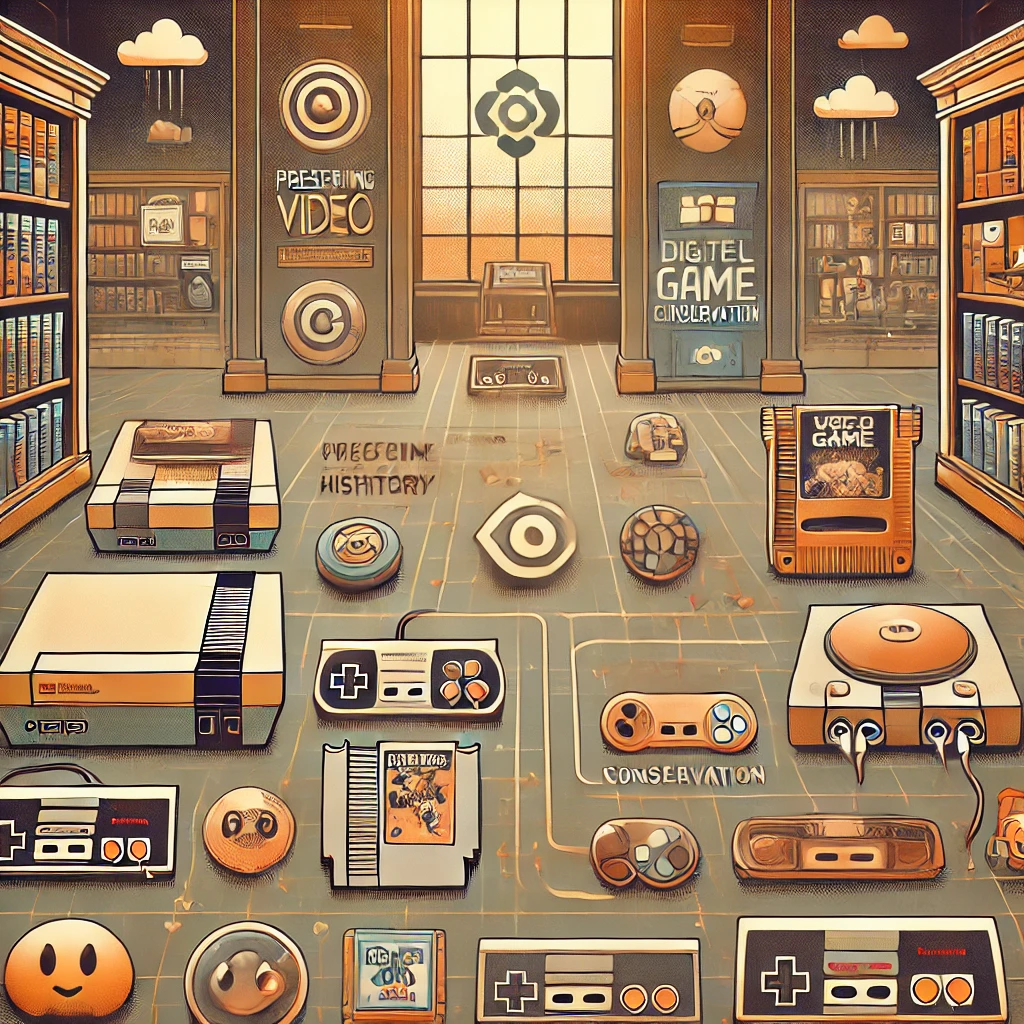Preserving Video Game History: The Importance of Conservation
In a rapidly evolving digital world, the preservation of video game history is of utmost importance. Video games are not only a form of entertainment but also a significant cultural and historical artifact that reflects the evolution of technology, creativity, and storytelling. As technology advances and older hardware becomes obsolete, the risk of losing access to classic games and the history they represent becomes more pronounced. In this article, we will explore the significance of video game preservation, strategies for conserving video game history, and the challenges and future of video game conservation.

The Significance of Video Game Preservation
Video games have become an integral part of popular culture, with millions of players around the world enjoying a wide variety of games across different platforms. From classic arcade games like Pac-Man and Tetris to modern masterpieces like The Legend of Zelda and Final Fantasy, video games have a rich history that deserves to be preserved for future generations.
Preserving video game history is essential for several reasons. Firstly, it allows us to understand the evolution of technology and game design over time. By studying older games, developers can gain insights into the creative process and learn from past successes and failures. Secondly, preserving video game history ensures that future generations can experience and appreciate the games that shaped the industry. Just as art and literature are preserved in museums and libraries, video games should be preserved in digital archives for posterity.
In recent years, the rise of digital distribution platforms has made it easier for players to access and play classic games. However, this convenience comes with a downside – many older games are at risk of being lost forever due to licensing issues, hardware compatibility issues, and the lack of preservation efforts. Without a concerted effort to preserve video game history, we risk losing an important part of our cultural heritage.
Strategies for Conserving Video Game History
Preserving video game history requires a multi-faceted approach that involves archivists, developers, publishers, and players working together to ensure that classic games are not lost to time. One of the most effective strategies for conserving video game history is emulation, which involves creating software that mimics the behavior of older hardware to run classic games on modern systems. Emulation allows players to experience older games as they were originally intended, preserving the gameplay experience for future generations.
Another important strategy for conserving video game history is digital preservation, which involves creating backups of game data and storing them in secure archives. Digital preservation ensures that games are not lost due to hardware failures or other technical issues, allowing players to access and play them for years to come. In addition, initiatives like the Internet Archive’s Video Game Console Library and the Video Game History Foundation are working to preserve and catalog classic games for future generations.
Challenges and Future of Video Game Conservation
While efforts to preserve video game history have gained momentum in recent years, there are still several challenges that need to be addressed. One of the biggest challenges is the legal and ethical issues surrounding game preservation, as many older games are still protected by copyright law. Developers and publishers must work together to find solutions that allow for the preservation of classic games while respecting intellectual property rights.
Another challenge facing video game conservation is the rapid pace of technological change, which can make it difficult to preserve older games on newer hardware. As hardware and software evolve, older games may become incompatible or unplayable, posing a threat to their long-term preservation. Finding ways to ensure that classic games remain accessible on future platforms is essential for the continued conservation of video game history.
Despite these challenges, the future of video game conservation looks promising. With the rise of digital distribution platforms, cloud gaming, and other technologies, it is becoming easier for players to access and play classic games on modern systems. By working together to address legal, technical, and ethical challenges, we can ensure that video game history is preserved for future generations to enjoy.
In conclusion, the preservation of video game history is essential for understanding the evolution of technology and game design, ensuring that future generations can appreciate the games that shaped the industry. By employing strategies like emulation, digital preservation, and collaborative initiatives, we can ensure that classic games are not lost to time. While there are challenges to overcome, the future of video game conservation looks promising thanks to advancements in technology and the dedication of the gaming community to preserving our cultural heritage.